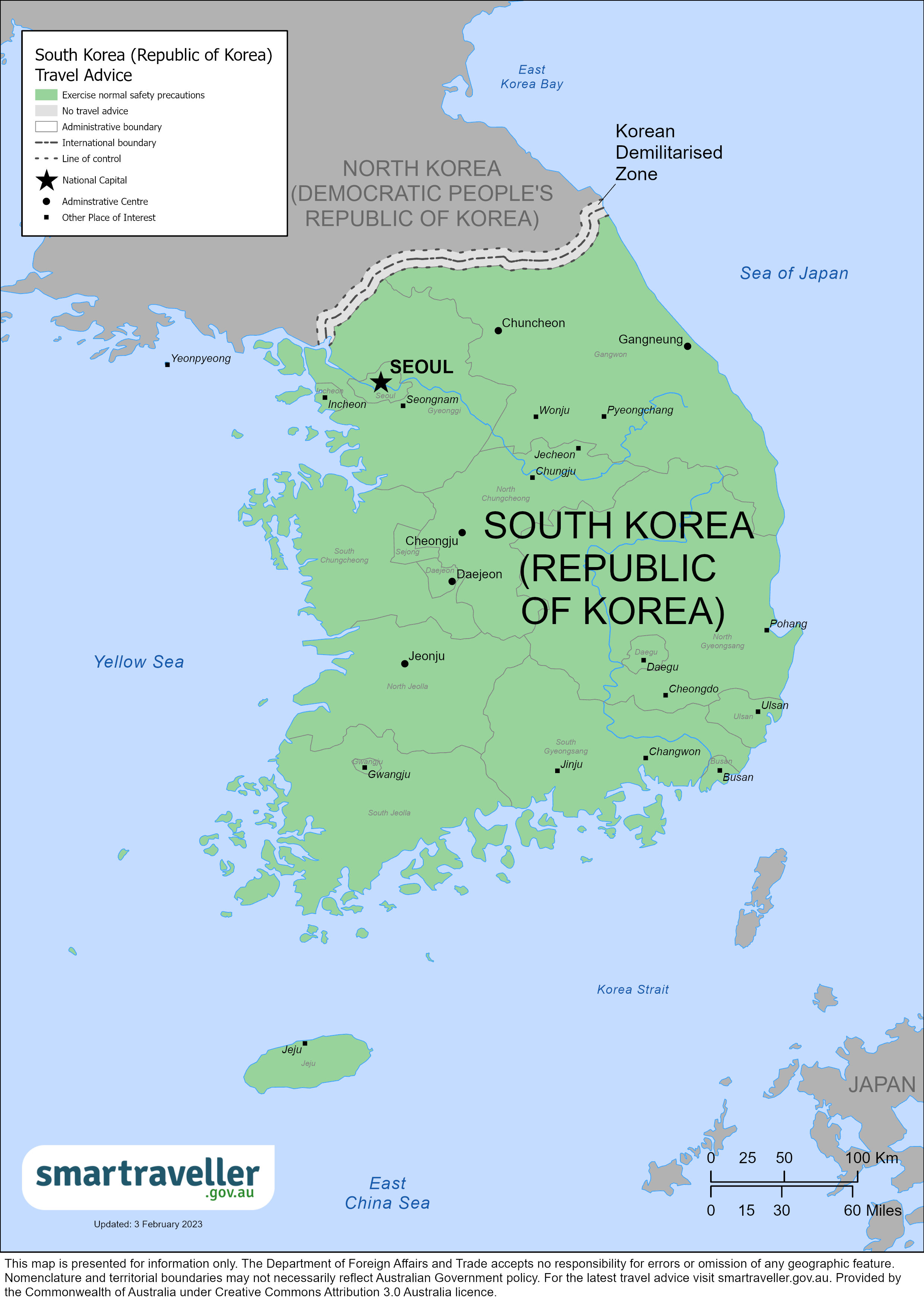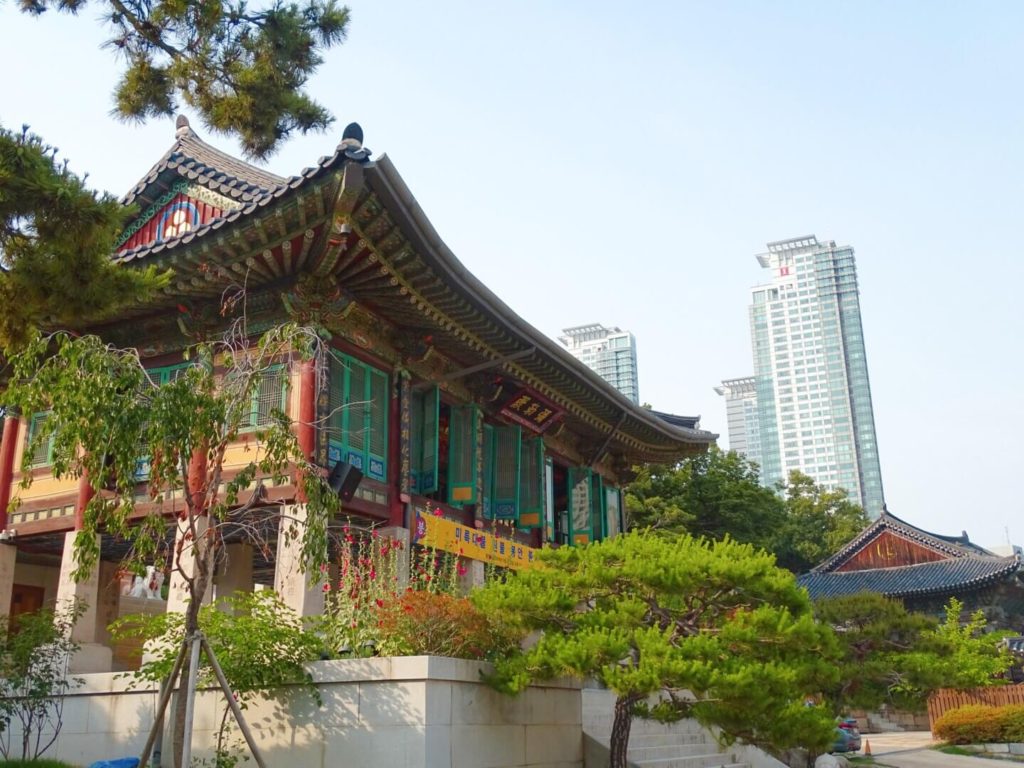South Korea Travel Guide: Essential Tips for Australians

Introduction
Overview of South Korea
South Korea, located in East Asia, is a vibrant and culturally rich country known for its fascinating blend of tradition and modernity. From bustling cityscapes to serene temples and picturesque landscapes, South Korea offers a diverse range of experiences for visitors.
The country boasts a dynamic culinary scene, cutting-edge technology, and a deep-rooted appreciation for its heritage. Whether you're exploring the neon-lit streets of Seoul or hiking in the majestic mountains, South Korea promises a journey filled with delights at every turn.
Purpose of the Travel Guide
The purpose of this travel guide is to provide Australian travellers with essential information and tips to make their visit to South Korea smooth and memorable. From visa requirements to cultural etiquette and transportation options to budgeting tips, this guide aims to equip you with the knowledge needed to navigate and fully enjoy your time in this captivating country.
Whether you are a first-time visitor or a seasoned explorer, this guide will help you make the most of your South Korean adventure. Stay tuned as we delve into the intricacies of travelling to South Korea, ensuring you have a seamless and enriching experience in this fascinating destination. Let's embark on this journey together!

Visa and Documentation
Visa requirements for Australians
- Tourist Visa: Australians visiting South Korea for tourism purposes can stay for up to 90 days without a visa.
- Visa Extension: If you plan to stay longer, you can extend your stay for an additional 90 days by applying at the local immigration office.
- Electronic Travel Authorization (ETA): If you are transiting through South Korea, you may require an ETA depending on your nationality.
Recommended documentation for travellers
- Passport: Ensure your passport has at least six months validity beyond your intended stay in South Korea.
- Flight Itinerary: Have a copy of your confirmed return or onward flight tickets.
- Proof of Accommodation: Carry reservations for your stay in South Korea.
- Travel Insurance: It's advisable to have travel insurance that covers medical expenses and repatriation.
- Local Currency: Carry some South Korean Won for initial expenses upon arrival.
- Emergency Contact Information: Keep a list of emergency contacts handy.
By being prepared with the necessary documents and meeting the visa requirements, you can ensure a hassle-free entry into South Korea. Planning ahead and organizing your documentation will help you focus on enjoying your travels in this captivating country.

Transportation
Public transportation in South Korea
- Efficient System: South Korea boasts a highly efficient and extensive public transportation network that includes buses, subways, and trains.
- T-Money Card: The T-Money card is a convenient and cost-effective way to pay for public transportation across the country.
- Subway Systems: Major cities like Seoul and Busan have advanced subway systems that make getting around easy and convenient.
- Bus Services: Buses in South Korea are known for their punctuality and connectivity, offering a budget-friendly way to explore.
Renting a car vs using public transportation
- Public Transportation: Opting for public transportation is recommended for most travelers due to its affordability, efficiency, and coverage of major tourist areas.
- Traffic Conditions: South Korea's urban areas can experience heavy traffic, making public transportation a more convenient choice.
- Language Barrier: Using public transport may be easier for international travellers who are not familiar with Korean road signs.
While public transportation is the preferred choice for many visitors, renting a car can be a great option for those who prefer more flexibility and independence during their travels. Consider your itinerary, comfort level when driving abroad, and travel preferences when deciding between the two modes of transportation in South Korea.

Accommodation
Types of Accommodation Options
- Hotels: South Korea offers a wide range of hotels catering to various budgets and preferences, from luxury hotels to budget-friendly options.
- Hanok Stays: Experience traditional Korean accommodation by staying in a Hanok, a traditional Korean house with a unique architectural style.
- Guesthouses: Budget-conscious travellers can opt for guesthouses, which provide a more intimate and local experience.
Recommended areas to stay in South Korea
- Seoul: The vibrant capital city offers a mix of modernity and tradition, with a plethora of accommodation options ranging from upscale hotels to cosy guesthouses.
- Busan: Known for its beautiful beaches and bustling markets, Busan is a popular destination with a range of accommodations along the coast.
- Jeju Island: For a relaxing beach getaway, consider staying on Jeju Island, which is famous for its natural beauty and volcanic landscapes.
Choosing the right accommodation can enhance your overall travel experience in South Korea. Whether you prefer the convenience of city life or the tranquillity of island living, there are accommodation options to suit every taste and budget. Research the areas that align with your travel plans and preferences to make the most of your stay in this captivating country.

Food and Dining
Must-try Korean dishes
- Bibimbap: A delicious mix of rice, vegetables, meat, and spicy chilli paste.
- Kimchi: Fermented vegetables, typically cabbage or radish, served as a side dish.
- Korean BBQ: Grilled meats, often pork or beef, served with an array of side dishes.
- Tteokbokki: Spicy rice cakes cooked in a gochujang sauce, a popular street food.
- Japchae: Stir-fried glass noodles with vegetables and occasionally meat.
Dining etiquette and tips for Australians
- Slurping: It's acceptable and even appreciated to slurp noodles in Korean culture as a sign of enjoying the meal.
- Sharing: Korean meals are often served family-style, so be prepared to share dishes with others at the table.
- Use of Chopsticks: Try to avoid sticking chopsticks upright in a bowl of rice as it is considered impolite.
- Refrain from Tipping: Tipping is not customary in South Korea, as it may be seen as rude.
- Learn Basic Korean Phrases: Showing effort by using simple Korean greetings like "Annyeonghaseyo" (Hello) can be well-received by locals.
By indulging in must-try Korean dishes and respecting dining etiquette, Australians can fully immerse themselves in the rich culinary culture of South Korea. Embrace the unique flavours and customs of Korean dining for a truly memorable gastronomic experience.

Culture and Etiquette
Essential cultural norms to be aware of
- Respect for Elders: In Korean culture, showing respect to elders is highly valued. Use honorifics when addressing someone older.
- Removing Shoes: It is customary to remove shoes before entering a Korean home or traditional establishment.
- Bow as a Greeting: Bowing is a common form of greeting in South Korea to show respect.
- Hierarchy: Korean society has a strong hierarchical structure, so pay attention to age and status in interactions.
- Personal Space: Koreans value personal space, so avoid standing too close during conversations.
Tips on interacting with locals
- Learn Some Korean: Even basic Korean phrases can go a long way in connecting with locals and showing respect for their language.
- Accept Invitations: If invited to a local's home or event, accepting the invitation is a great way to experience Korean hospitality.
- Gift Giving: When visiting someone's home, consider bringing a small gift or fruit as a token of appreciation.
- Practice Patience: Koreans value patience and may take time to build trust in relationships and communication.
- Smile and Be Polite: A warm smile and polite demeanour can help break the ice and enhance interactions with locals.
By understanding and adhering to essential cultural norms and engaging respectfully with locals, Australians can foster meaningful connections and gain deeper insights into the rich traditions and customs of South Korea. Embrace the cultural nuances for a more enriching travel experience in this dynamic country.
Safety and Health
Important safety tips for travellers
- Stay Vigilant: While South Korea is generally safe, it's advisable to remain vigilant in crowded areas and tourist spots to avoid petty crimes like pickpocketing.
- Emergency Numbers: Familiarize yourself with emergency numbers such as 112 for police and 119 for medical assistance.
- Traffic Safety: Exercise caution when crossing roads, as traffic can be busy, and road rules may differ from what you're used to.
- Weather Awareness: Be prepared for changing weather conditions, especially during typhoon season or winter months.
Healthcare facilities and insurance in South Korea
- Quality Healthcare: South Korea is known for its excellent healthcare facilities, with modern hospitals and clinics in major cities.
- Travel Insurance: It's recommended to have travel insurance that covers medical expenses, as healthcare for foreigners can be costly.
- Pharmacies: Pharmacies are abundant in South Korea, and pharmacists can often provide over-the-counter medications for common ailments.
- Language Barrier: Consider carrying a translated copy of your medical conditions or allergies to aid communication with healthcare providers.
By following safety precautions and being aware of healthcare options in South Korea, travellers can enjoy their journey with peace of mind. Prioritize your well-being by staying informed and prepared for any unforeseen circumstances during your time in this captivating country.

Currency and Budget
Currency exchange tips
- Exchange Rates: Before travelling to South Korea, check the current exchange rates to understand the value of your home currency.
- ATMs: Utilize ATMs to withdraw Korean Won, as they offer competitive rates compared to currency exchange services.
- Credit Cards: Major credit cards are widely accepted in South Korea, especially in urban areas, but it's advisable to carry some cash for smaller establishments.
- Banks vs Currency Exchange Counters: Banks generally offer better exchange rates than currency exchange counters in tourist areas.
Average daily budget recommendations for travellers
- Accommodation: Budget travellers can find hostels or guesthouses starting from around ₩20,000 to ₩50,000 per night, while mid-range hotels may range from ₩70,000 to ₩150,000.
- Food: A meal at an affordable local restaurant can cost between ₩5,000 to ₩12,000, while dining at a mid-range restaurant may range from ₩15,000 to ₩30,000 per person.
- Transportation: Public transportation in South Korea is budget-friendly, with subway rides costing around ₩1,250 to ₩2,000 per trip.
- Activities: Entrance fees to attractions vary, but budgeting around ₩10,000 to ₩30,000 for activities and sightseeing per day is a good estimate.
By managing your currency exchanges wisely and budgeting for various expenses, you can make the most of your travel funds in South Korea. Understanding the cost factors and planning your budget in advance will help you enjoy a fulfilling and financially sound travel experience in this captivating destination.
Communication
Language barriers and useful phrases
- Language Challenge: While English is somewhat spoken in South Korea, especially in tourist areas, language barriers may still exist outside major cities.
- Basic Phrases: Learning simple Korean phrases like "Hello" (Annyeonghaseyo) and "Thank you" (Gamsahamnida) can go a long way in communication.
- Translation Apps: Consider downloading translation apps on your phone, like Google Translate, to aid in conversations with locals.
- Body Language: Non-verbal communication such as gestures and facial expressions can help bridge language gaps and convey messages effectively.
Sim cards and internet connectivity options
- SIM Cards: Purchase a local SIM card for your phone upon arrival in South Korea to access data and make local calls.
- Wi-Fi Availability: Wi-Fi is widely available in hotels, cafes, restaurants, and public spaces throughout South Korea.
- Portable Wi-Fi Devices: Renting a portable Wi-Fi device, also known as a pocket Wi-Fi, is a convenient option for continuous internet connectivity on the go.
- Internet Cafes: If you need a reliable internet connection, internet cafes (PC bangs) are prevalent in South Korea and offer high-speed internet access.
By overcoming language barriers with key phrases and leveraging technology for connectivity, you can enhance your communication experience while exploring South Korea. Stay connected and informed to make the most of your travels and interact effectively with locals in this dynamic and tech-savvy country.

Conclusion
Recap of essential tips for Australians travelling to South Korea
- Visa and Documentation: Ensure you meet the visa requirements and carry the necessary documents for a smooth entry.
- Transportation: Utilize the efficient public transportation system or consider renting a car based on your travel preferences.
- Accommodation: Choose from a variety of options ranging from hotels to traditional Hanok stays in recommended areas.
- Food and Dining: Dive into the vibrant culinary scene by trying must-try Korean dishes and respecting dining etiquette.
- Culture and Etiquette: Familiarize yourself with cultural norms and engage respectfully with locals for a deeper cultural experience.
- Safety and Health: Stay vigilant, be aware of emergency numbers, and ensure you have travel insurance for quality healthcare.
Final thoughts and recommendations
In conclusion, South Korea is a captivating destination that offers a harmonious blend of tradition and modernity, making it an enriching travel experience for Australians. By immersing yourself in the culture, savouring the delectable cuisine, and embracing the warm hospitality of locals, you can create lasting memories in this vibrant country.
Remember to respect the customs and norms of South Korea, stay mindful of your safety and health, and embark on your journey with an open mind and adventurous spirit. Whether exploring the bustling streets of Seoul or relaxing on the serene shores of Jeju Island, South Korea promises a journey filled with enchanting discoveries and unforgettable moments. Enjoy your travels and make the most of your time in this dynamic East Asian gem!
